On September 29, 2011 will be held in Madrid, the seminar “Electronic Evidence“, organized by Atenea Interactiva, with a discount of 150 euros (on 450) for those who register before August 15 (and no cost if bonus through the Fundación Tripartita).
The term “electronic evidence“, popularized by the Electronic Evidence Forum, comes from the English name “electronic evidence“, and classifies as such electronic documents or collections of data from a computer system that can be subjected to the criteria of computer experts to determine their authenticity and be provided as evidence in court, so that their content is relevant to the case.
Where electronic signatures are used, their evidentiary effectiveness is particularly important because of the normative context that determines the presumption of integrity and attributability aspects. However, the mere electronic signature does not take into account certain technical aspects (such as the AdES-XL advanced forms) and, if this aspect is not taken into account, important elements such as datability (placing the signature in time) or the verification of its validity (with respect to the inclusion or not of the certificate, at the time of signature, in the list of revoked certificates) may be lost.
Laws such as the LAECSP (Law 11/2007) and LMISI (Law 56/2007) generalise electronic transactions in the private and public sector, but those who have to implement them often wonder how to present electronic evidence in court proceedings, if this is the case. The Spanish Civil Procedure Law is very advanced in the use of electronic means and, within its framework, mechanisms have been created to present electronic evidence in court.
On the other hand, security incidents leave behind a set of traces and vestiges that, when linked to each other and to other investigative sources, help to recreate the factual account of the event, thanks to the skills of the forensic investigators who analyse them. We thus add the assessment of unstructured evidence to the structured evidence that is managed in electronic transactions, completing the framework of evidence that can be presented, with the procedures foreseen in the procedural instances.
Concepts such as logs, hash, timestamping, databases, digital diplomacy, electronic signature, chain of custody, are handled in these contexts and are some of those that will be presented in this seminar taught by renowned professionals.
This day, which I will have the pleasure of chairing, is structured according to the following PROGRAMME:
1. Introduction by the chairman of the conference
Julián Inza
2. The value of computer evidence: Current problems
Javier Pagès López
- The value of computer evidence.
- Some validity criteria
- Rules for expert action.
- Main current problems – Practical examples:
- Civil Environment.
- Mercantile Environment.
- Work Environment.
- Penal Environment.
- Some Existing Solutions:
- Certified Evidence Custody.
3. Cybercrime and insecurity 2.0
Antonio Angel Ramos Varon
- Cybercrime as a business architecture around online crime.
- Visiting online channels for the exchange of: personal and banking data.
- The sale and acquisition of material to commit crimes on the network.
- Tracking a person or organization has never been easier.
- Using tools to track people or infrastructure.
- Analyzing jammed communications in a network.
- Geolocation seen as a security breach.
4. Evidence: forensic or certified?
Jacob van Leeuwen
- The contradiction of electronic “evidence”.
- What do you want to demonstrate?
- Ways of challenging evidence.
- Pre-building: certifying evidence.
- Some techniques to demonstrate will, origin or content.
- Adequacy in terms of risk vs. usability/cost.
- Analysis of legal validity.
- Case studies: email, web and social networks.
5. Digital diplomacy and management of documents with evidentiary character
Fernando Pino
- Authenticity of Electronic Documents. Digital Diplomacy.
- Private documents. Public documents.
- Long-term custody of documents.
- Electronic Evidence in the Civil Procedure Law.
- Chain of custody.

